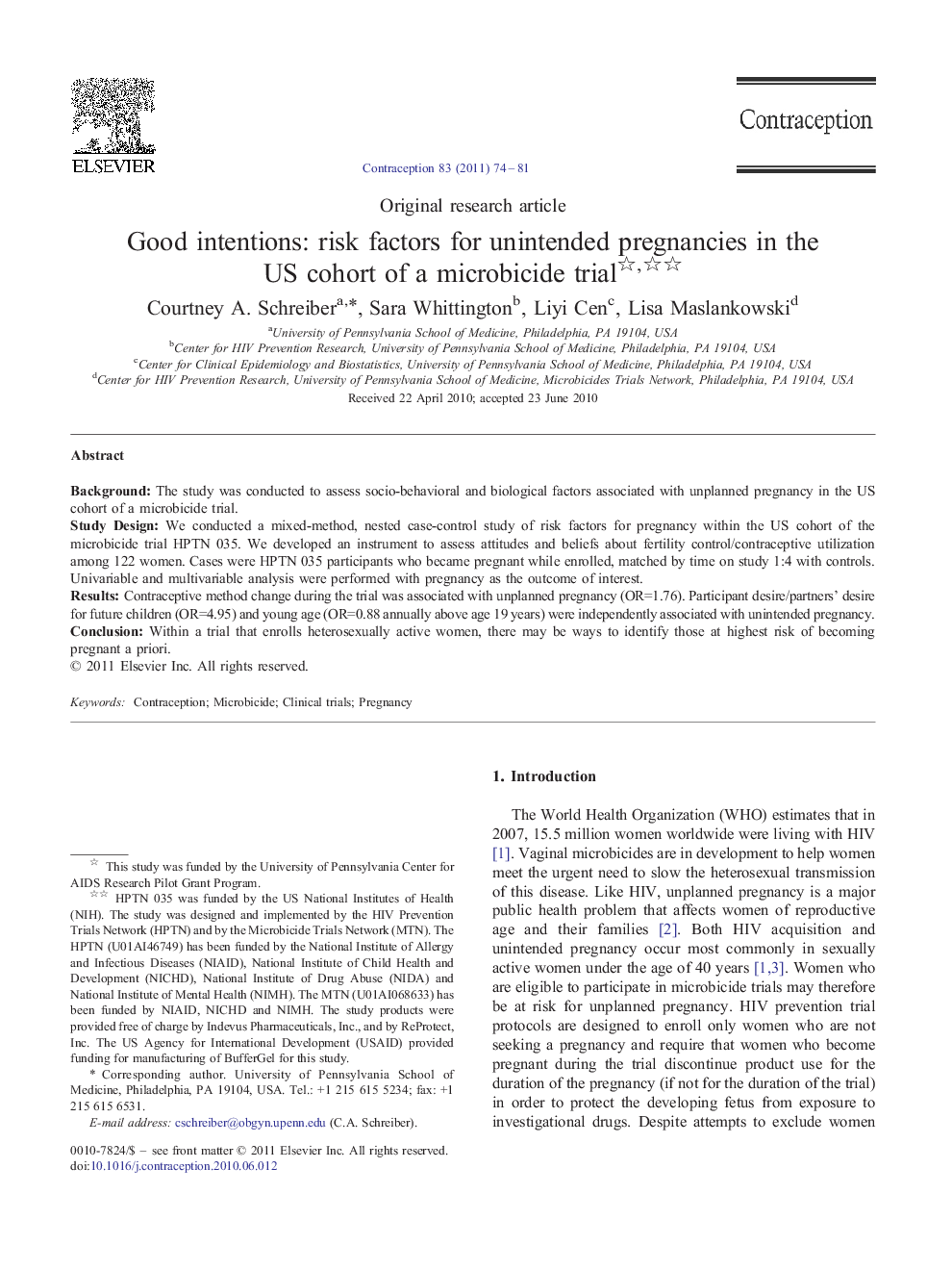| Article ID | Journal | Published Year | Pages | File Type |
|---|---|---|---|---|
| 3914313 | Contraception | 2011 | 8 Pages |
BackgroundThe study was conducted to assess socio-behavioral and biological factors associated with unplanned pregnancy in the US cohort of a microbicide trial.Study DesignWe conducted a mixed-method, nested case-control study of risk factors for pregnancy within the US cohort of the microbicide trial HPTN 035. We developed an instrument to assess attitudes and beliefs about fertility control/contraceptive utilization among 122 women. Cases were HPTN 035 participants who became pregnant while enrolled, matched by time on study 1:4 with controls. Univariable and multivariable analysis were performed with pregnancy as the outcome of interest.ResultsContraceptive method change during the trial was associated with unplanned pregnancy (OR=1.76). Participant desire/partners' desire for future children (OR=4.95) and young age (OR=0.88 annually above age 19 years) were independently associated with unintended pregnancy.ConclusionWithin a trial that enrolls heterosexually active women, there may be ways to identify those at highest risk of becoming pregnant a priori.
